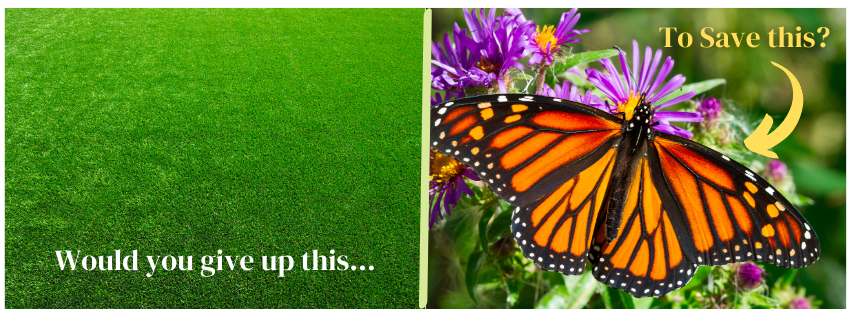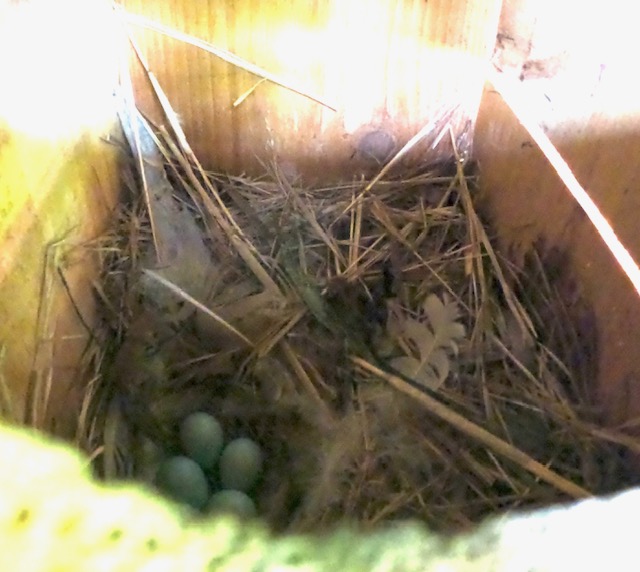Get ready—we’re entering prime bird migration season for our area. In fact, here in the US and Canada, we celebrate May 11, 2024 as World Migratory Bird Day.
Right now, birds need all the help we can give them. North America’s bird population has declined by nearly three billion (that’s billion with a “B”) since 1970. For shorebirds specifically, many species have lost more than 50% of their population over the last three decades.
This news is tragic. There is no way to sugarcoat it. Bird populations are declining at an alarming, unsustainable rate and most assuredly, humans are the cause.
While some people don’t care, you do (although everyone should care because of the economic ramifications of species loss). You love the outdoors. You love being on the water. You love wildlife.
As Anne Frank said, “How wonderful it is that nobody need wait a single moment before starting to improve the world.”
These are the things you and I can do right now to help birds:
1) Avoid pesticides in your food AND on your lawn. Pesticides kill the insects birds eat to survive. Worldwide, insects are decreasing at an equally alarming rate. Insects are the base of the food chain. We need them, so we need to stop killing them!
But it’s hard to go organic—it’s so expensive. To help you decide when it’s worth it, here’s a list of the top 12 most heavily sprayed fruits and veggies: https://www.downtoearth.org/environment/organic-vs-conventional-farming/dirty-dozen-most-heavily-sprayed-foods

2) Don’t use rat poisoning. Rodenticides use an anticoagulant which basically turns its victims’ insides to mush. It is an intentionally slow death, taking 4-5 days, so that the rat or mouse leaves the homeowner’s property. Disoriented, they are easy prey for birds, mostly raptors. Birds that eat poisoned rodents become poisoned, also dying a slow, painful death.
This site offers suggestions for safe rodent control: https://saferodentcontrol.org/site/rodent-control/
3) Make your windows bird-safe. It’s estimated that up to a billion birds die every year in the US and Canada after window strikes. They don’t see the glass—just the reflection of their habitat. Breaking up the reflection is the goal of making your windows bird-safe. To achieve this, you can install screens or apply film, tape, or paint to the glass. (To work effectively, you must apply the products to the outside of your windows.)
Here’s a website with descriptions of products available to make windows less deadly for birds: https://abcbirds.org/solutions/prevent-home-collisions/
4) Donate to habitat-protecting organizations.
- Delaware Wild Lands aggressively pursues land acquisition for conservation. To date, they’ve protected over 31,600 acres of critical habitat in Delaware. They are the largest non-profit, non-governmental landowner in the state of Delaware.
- The Delaware Nature Society, through building relationships and coalitions, working for state funding, and outright acquisitions, has protected over 100,000 acres since its beginning in 1964.
5) Decrease your lawn size and plant natives. We need to work on readjusting our collective tastes. An emerald green lawn is not an aesthetic ideal. It’s a biologic dead-zone. Instead of grass that only your dog or cat eats (and then throws up on your carpet!) plant native trees and shrubs. Natives require less fertilizer, pesticides, and water because they evolved to thrive in our environment. And they attract and sustain wildlife.
Delaware’s very own Douglas Tallamy has started a movement called “Home Grown National Park.” He believes that property owners hold the key to saving biodiversity simply by planting natives. An entomologist, you may think his writing might be a little dry. But his message is hopeful and enthusiastic. https://homegrownnationalpark.org/
6) And speaking of kitty-cats…Please keep your cat indoors. Aside from habitat loss, outdoor cats are the #1 human-caused reason for bird deaths. Keeping Sylvester inside is healthier for him and will save thousands of Tweety-birds.
7) Drink shade-grown coffee. Every single morning you can help birds just by changing your coffee brand. Sun-grown coffee destroys the forests, eliminating the homes, shelters, and sustenance of thousands of birds and other wildlife. Shade grown coffee preserves the forest canopy, keeping this vital habitat in place. During the winter, shade-grown coffee plantations help over 42 species of North American migratory songbirds, including orioles, warblers, and thrushes.
Here’s a website to help you find bird-friendly coffee: https://nationalzoo.si.edu/migratory-birds/where-buy-bird-friendly-coffee
8) Educate yourself and support legislation which increases environmental protections for birds and wildlife.
- The Delaware Nature Society is very active in pursuing legislation addressing Delaware’s specific environmental issues. They promote advocacy and provide educational workshops on how to get involved.
- The Nature Conservancy is also very active in environmental legislation and has a page on their website dedicated to Delaware’s policies.
9) Volunteer, watch, and share. Volunteering with a project that is meaningful to you is the best way to put your concerns and frustrations to good use.
- For bird-specific projects, DNREC offers opportunities to help with research on Osprey, shorebirds, Piping Plovers, and Kestrels.
- The Great Backyard Bird Count, held every February, is a super-simple way to help scientists gather data on bird populations.
- The Audubon Society’s Christmas Bird Count turns 125 years old this year! This is another citizen science project that takes place from mid December through early January. The Christmas Bird Count requires advanced registration.
- Even a casual paddle can double as a citizen science project. Apps allow you to identify, record, and then share your observations, helping add to the data pool. Ebird and iNaturalist are two more popular ones (and if I can figure out how to use them, anyone can!).

Starling eggs in a kestrel box
It’s a long list, but not too painful, right? We can start small, pick one thing, and add on. For the love of birds, we have to do something!
Information for this blog post came from:
https://homegrownnationalpark.org/
